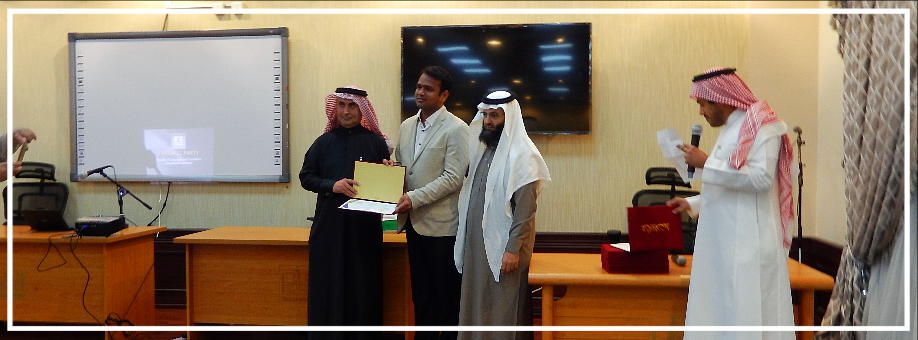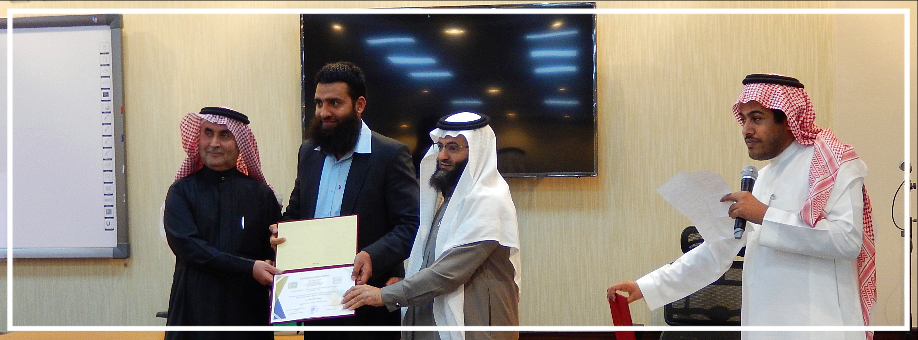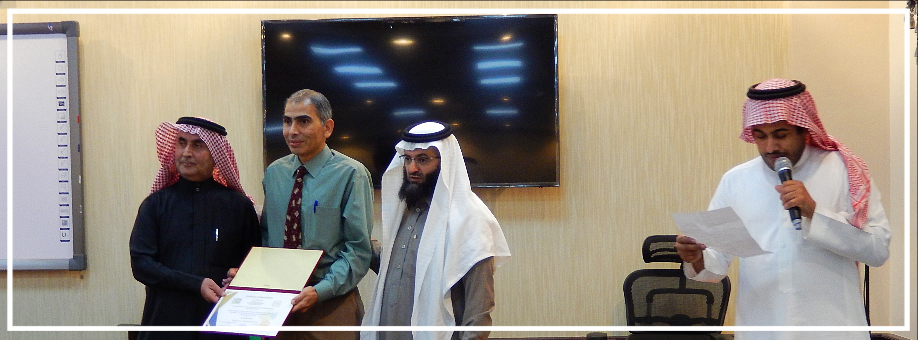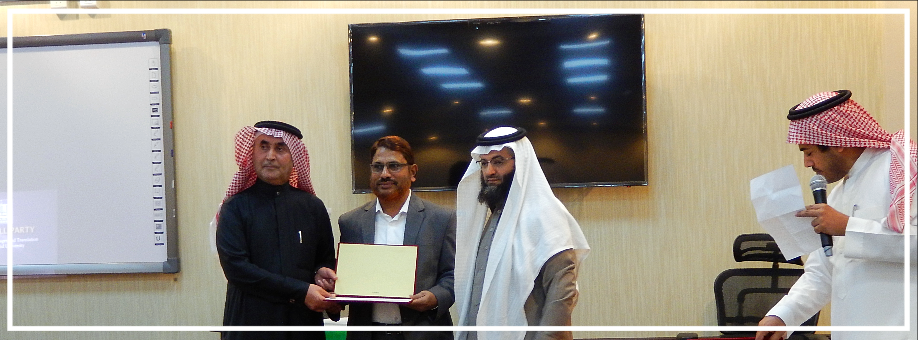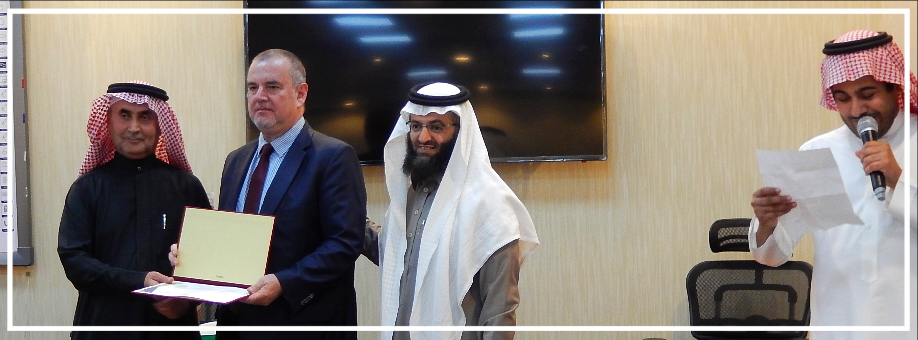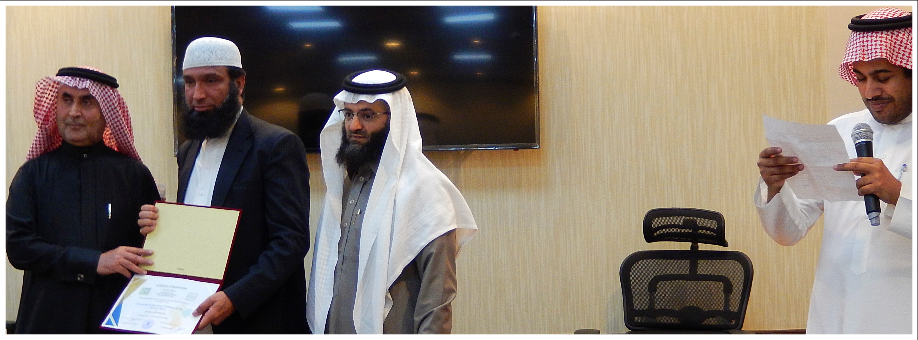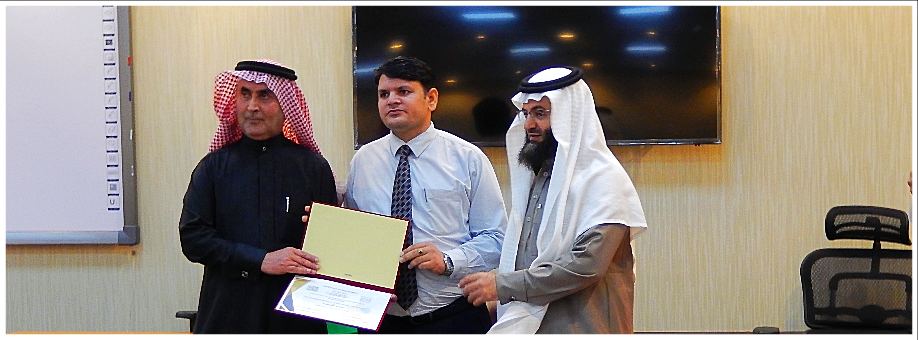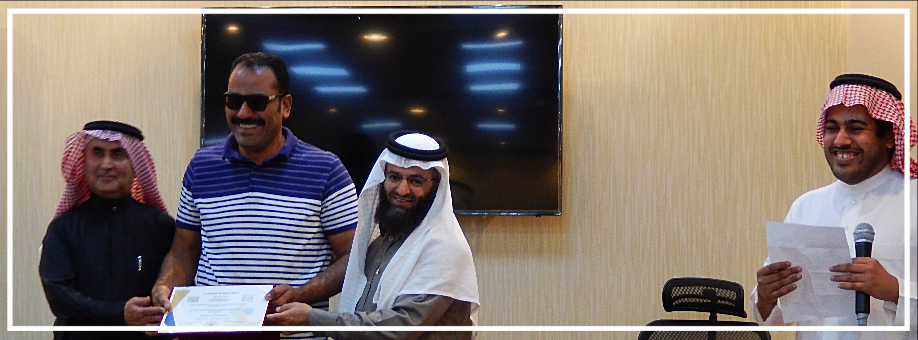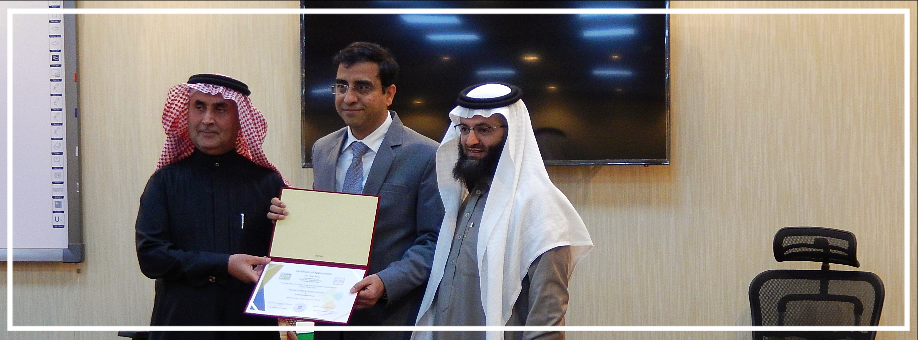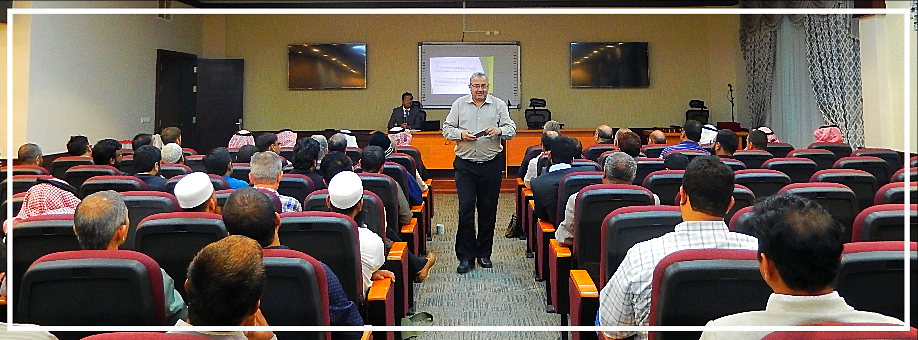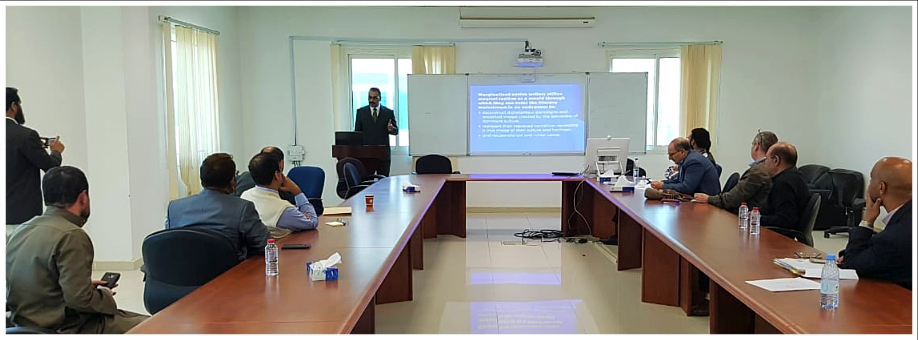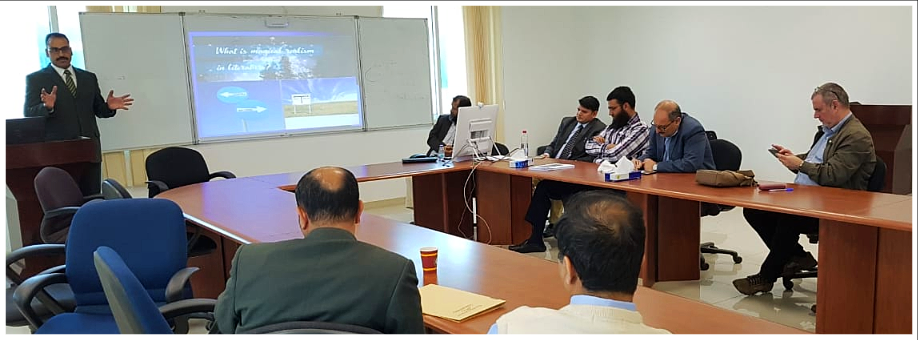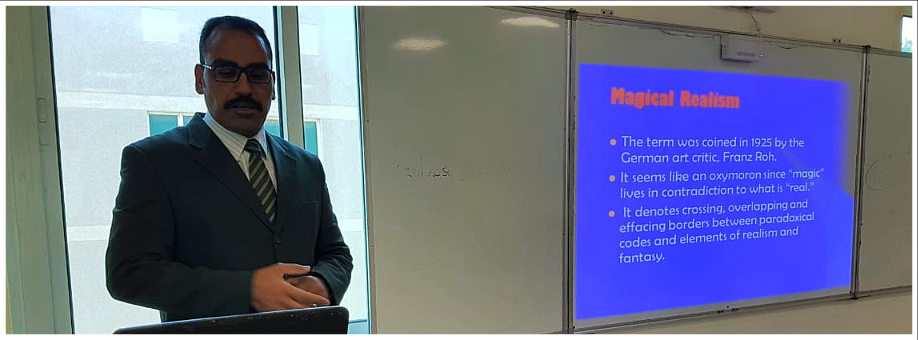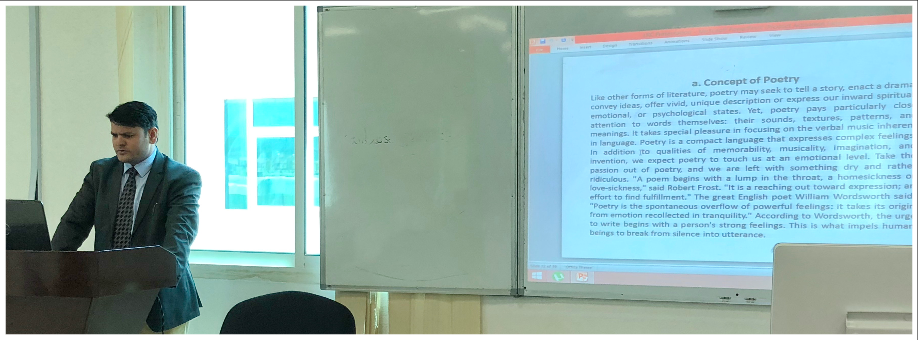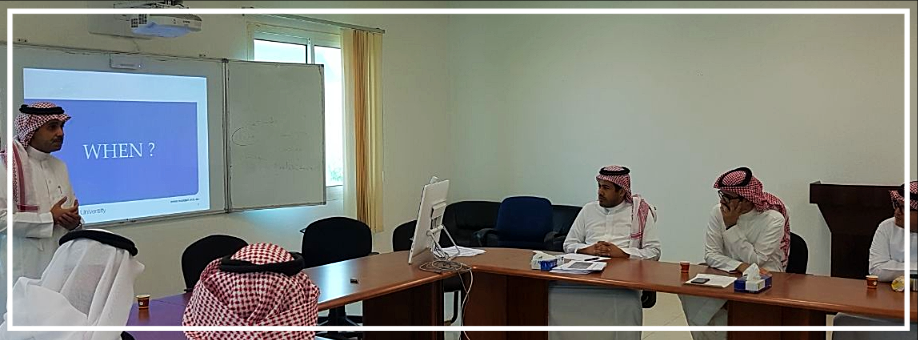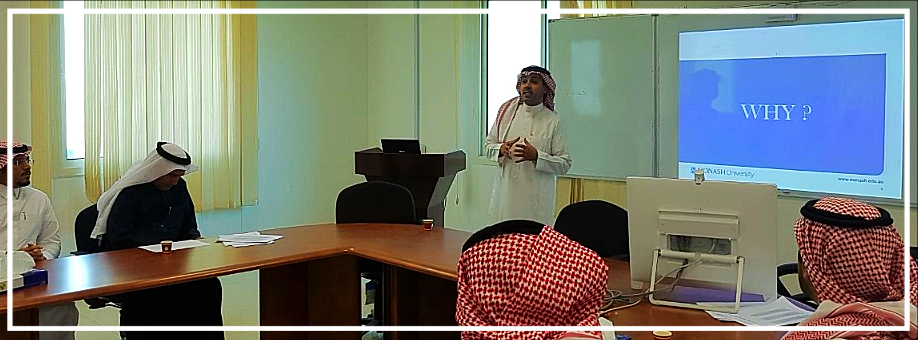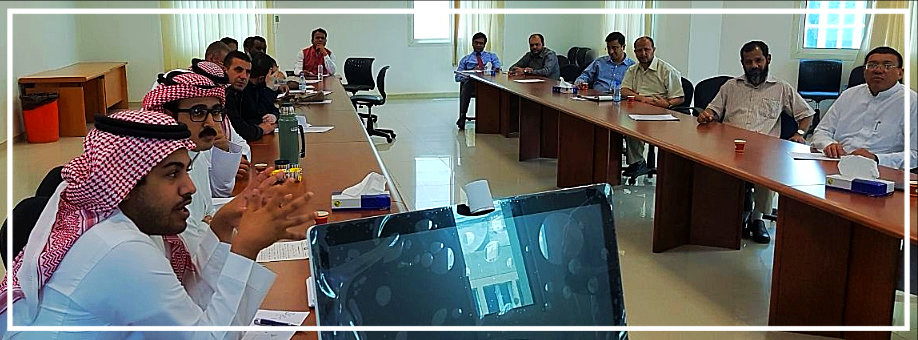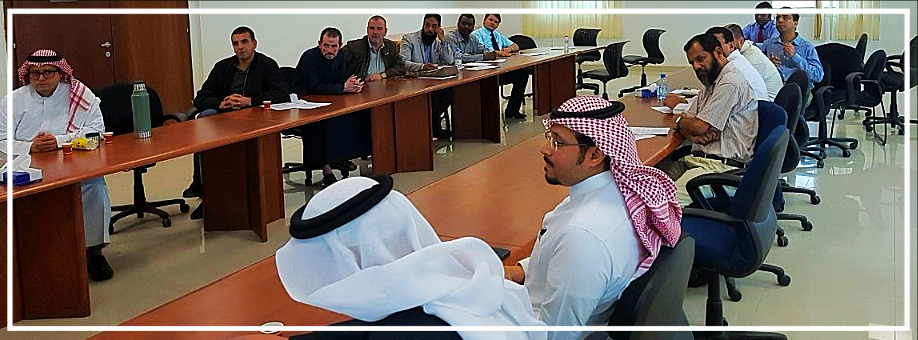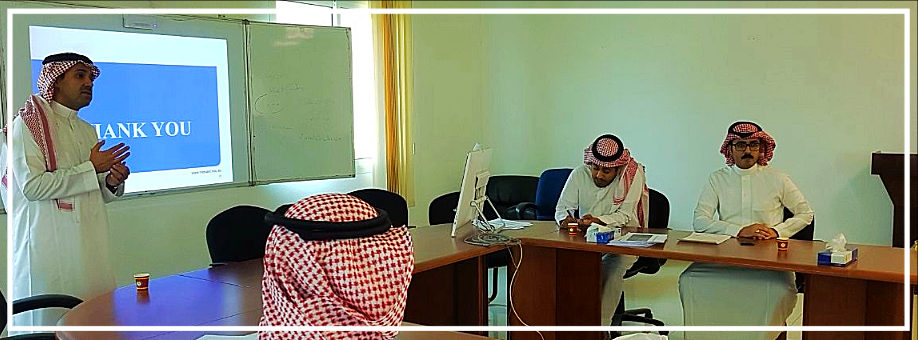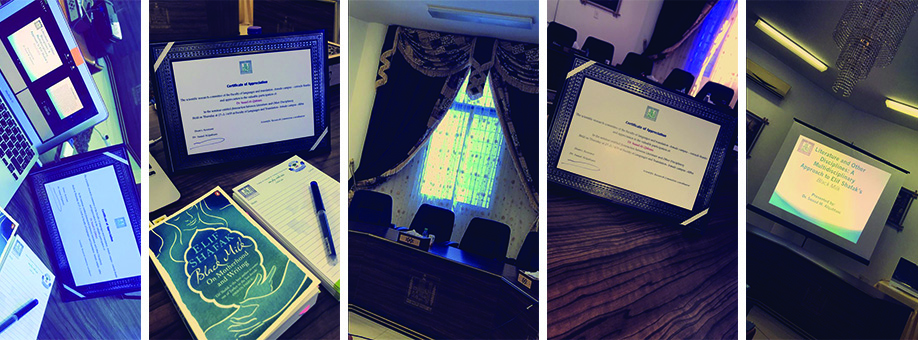Humor in Mark Twain's Fiction: A Seminar Presentation by Dr. Mohammad Osman and Certificate Award Ceremony
On April 25, 2018, the Language Research Center of King Khalid University organized a seminar that included a presentation by Dr. Mohammad Osman titled Humor is Mark Twain’s Fiction.
Dr. Osman’s presentation highlighted the way humor was expressed in Mark Twain’s fiction. His presentation commenced with a brief introduction to the author with a Hemingway (1935) quote – “All modern American Literature comes from one book by Mark Twain called Huckleberry Finn.” He stated the fact that Twain’s style had a profound impact on American literature. Dr. Osman also explained the difference between humor and satire. Humor, he said, provokes laughter and provides amusement. Satire, he added, ridicules vices, abuses, and highlights shortcomings through sarcasm. Twain’s humor was expressed through his hilarious characters, dialogs, events, and words he chose, said Dr. Osman. He concluded that Twain is usually remembered as perhaps the most celebrated writer in all of American Literature. That's how he was mainly valued in his day, and that's how he tends to be valued today as well.
After the seminar, there was a Certificate Award Ceremony in which all the seminar presenters of the academic year 1438-39 were honored with certificates.
Date: 4/26/2018
Source: Mr. Mohammad Adil Siddique

